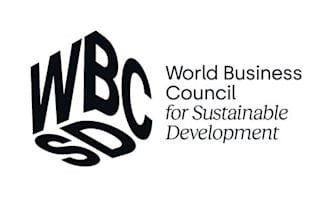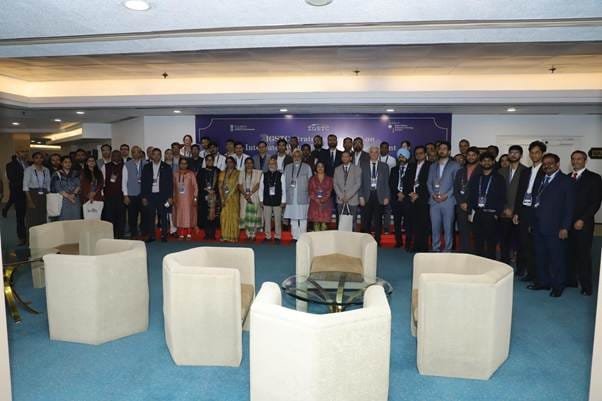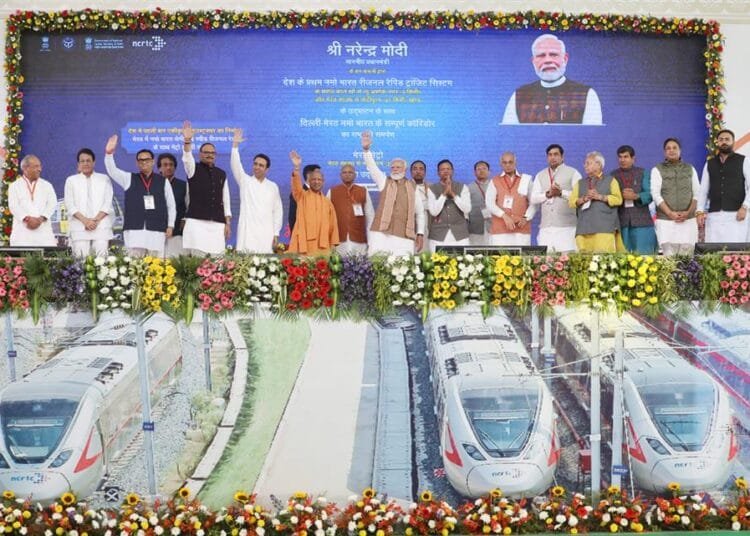Sustainability is strategic advantage, says Bakker
The scale of the Indian economy, demographic trends, the local impacts of climate change and the country’s ambitions around sustainability make it a critical geography for global transition efforts, says World Business Council for Sustainable Development (WBCSD) President and CEO Peter Bakker.
As such, “India is a strategic focus for WBCSD,” said Bakker, pointing out that the council’s work in areas, particularly transport and food, where the country has both major challenges and significant potential to lead.
He highlighted the second edition of India Connect in Mumbai, co-hosted by JSW Steel in February this year. It brought together over 120 leaders from business, government and civil society, alongside partners such as KPMG and the Confederation of Indian Industry (CII).
The focus was on electrification, green energy, circular production, resilient supply chains and inclusive growth, against a backdrop of aligning incentives to drive corporate performance and accountability—all essential themes for India’s sustainable industrial transformation, Bakker said in a recent interview with Press Trust of India (9 June).
“We’re also encouraged by the direction of policy in India,” he added, noting the government’s intent in the 2025 Union Budget to scale up investments in electric vehicles, renewable energy, green infrastructure, and the circular economy.
Together, these developments create real momentum for business-led solutions, added the Geneva-headquartered WBCSD chief, pointing out that the council’s role is to turn ambition into action. This is to help both Indian companies and global members operating in the green-focused country to deliver real, measurable progress.
“Our members are driving the development of data-driven infrastructure and unlocking innovative finance mechanisms to accelerate the adoption of electric vehicles,” underlined Bakker during a recent visit to Singapore.
The members are also strengthening supply chain resiliency and transparency, linking these efforts to financial impacts, and advancing their corporate performance and accountability, he noted.
This work is particularly advancing in the Agriculture & Food and Electric Freight sectors, where members are not just implementing support measures, but building the blocks for systemic change, according to Bakker.
“In today’s world, sustainability is a strategic advantage—and in a market as dynamic as India, those who lead on delivery will define the next era of competitive growth,” he said.
Further, WBCSD work in electric freight is advancing under the E-FAST (Electric Freight Accelerator for Sustainable Transport) initiative, led by NITI Aayog.
“Collaborating with industry stakeholders, we’ve aggregated demand for approximately 7,700 electric freight vehicles by 2030,” he said. This collective effort includes partnerships with companies like the Aditya Birla Group, JSW, Amazon, Maersk and others, focusing on pilot deployments and scaling strategies.
WBCSD is driving cross-value-chain collaboration to develop finance solutions – particularly around leasing facilities – to address the high upfront costs and limited credit access hindering the adoption of zero-emission trucks, especially amongst smaller fleet operators, underscored Bakker.
In parallel, the council members are advancing infrastructure deployment by mapping priority locations that could catalyze investments in 1,500 charge points and 78 MW of renewable energy along key corridors.
These actions are part of a broader effort to build an inclusive, scalable model for clean freight transition, addressing systemic financing and operational barriers through bundled solutions, according to Bakker.
This work will be featured in an upcoming report, “Financing e-Truck Adoption: Democratizing Zero Emission Trucks in India”, which is planned for release at London Climate Action Week 2025 (23 June 2025), he told PTI in an email response.
Such collective action in India is also paving the way for accelerated adoption in other geographies, such as Mexico and Brazil, he shared.
WBCSD recently launched the Rice Action Alliance, a new business-led platform to accelerate the shift to low-emissions and climate-resilient rice production systems. As one of the world’s largest rice producers and exporters, India is central to this initiative.
The Alliance is built around three core action areas: harmonizing technical guidance across low-emissions rice standards relevant to business; promoting supply chain innovation; and building impactful public-private partnerships, Bakker explained.
The initiative is already generating strong interest from Indian companies with rice supply chains, he said. While specific participants will be announced in due course, the Rice Action Alliance is designed to enable broad engagement from leading businesses operating across the rice value chain.
WBCSD is mobilizing members in India to advance efforts in measuring and managing physical risk across value chains, he said.
He continued, “These risks arise from the physical impacts of climate change and nature loss —such as extreme weather events, water scarcity, and biodiversity decline—which are already being felt globally and acutely in India.”
“Despite their growing significance for business, there remains a limited understanding of how these risks affect companies, particularly around second order and broader network impacts along value chains,” Bakker added.
He also shared the long-standing and constructive relationship with CII, particularly through their Centre of Excellence for Sustainable Development, which is the council’s Global Network partner in India. “It’s been an important platform for us to engage with Indian business leaders on sustainability,” added Bakker.
WBCSD has been involved in multiple capacities with CII over the last number of years, starting in 2018.
Bakker informed that the CII Summit 2025 will serve as a launch platform for WBCSD’s CEO Handbook on Physical Risk, underscoring India’s strategic importance and the urgent need to strengthen corporate understanding of how physical risks are already impacting businesses. Fiinews.com










